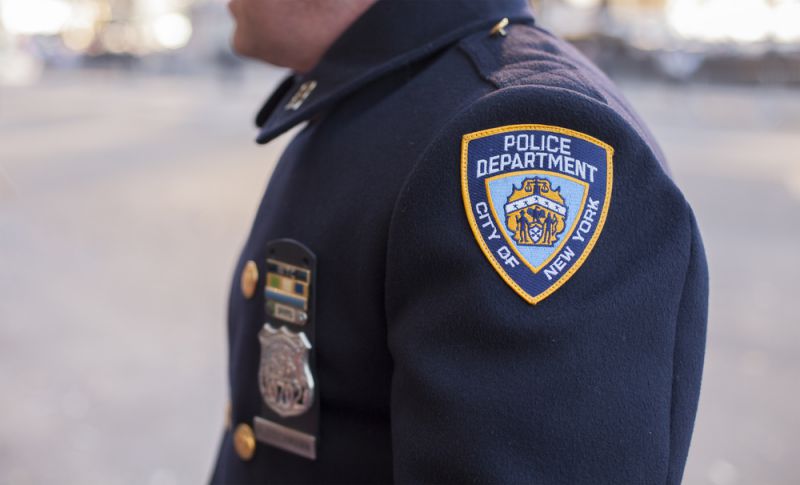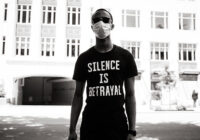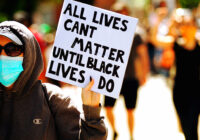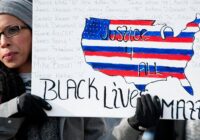Police violence cries out for accountability; police indifference cries out for a touch of humanity.
During the chaos in Baltimore, US national news led with a story that sounded so familiar: Another young black male looking a little suspicious ends up dead as a result of police action, protests and demonstrations follow, then some violence, then nothing.
In Baltimore, however, a young and courageous black prosecutor decided to change the script. All six police officers involved in the unlawful arrest and transport of what had been a healthy young man before his encounter with the police were actually charged with crimes related to their actions that taken together led to the young man’s death.
Whatever results, that prosecutor seems to have looked hard at the available evidence, determined which individuals did what and then remembered the oath she had taken four months earlier and simply did the right thing. That most were startled by this, probably including the charged officers, tells us volumes.
That same national news with the Baltimore story followed it with an account of the early proceedings in the trial of the man accused in the Aurora, Colorado theater shooting that left 12 people dead, including a 6-year-old girl. One of the first policemen to arrive at the scene was shown testifying about entering the theater, seeing the carnage and the young child, recognizing she was dead and stepping over her lifeless body to tend to the living. He was crying on the stand.
It is very hard to reconcile the callous police disregard for human life that has been seen so much in the news with the officer crying in a Colorado courtroom as he remembers a young life he couldn’t save. I think part of it is about racism that seems to feed an undercurrent of fear that some cops take with them to the streets each day and that somehow allows them to attach less value to a black life than a white life when a touch of humanity might better help overcome the fear and reduce the violence. But there has to be more, since black cops abusing black people in poor black and Latino communities is also part of the narrative.
We have seen Baltimore police begin a death march by throwing a seemingly injured black man into the back of a police van; the shooting of an unarmed black 12-year-old in Cleveland; the repeated shots into the back of another black man in North Charleston, South Carolina; and the collective indifference as an unarmed black man pleads for breath in Staten Island, New York, with multiple officers standing by like it was a training exercise on a rubber dummy instead of Eric Garner.
We seem to think that we can tell a lot about the bad cops we have seen in action lately. But I am still left wondering if the cop who choked Garner to death got home that night tormented by what he had done, believing that his policing moments of heroism and humanity had been erased by some momentary force that he could not control.
It is harder to know about the cop on the stand in Colorado. What we do know is that in a critical moment in time, his humanity was deeply touched by the carnage he confronted but did not cause. But what would he have done in Staten Island? Would he have been the cop who shouted “Stop, enough” to his indifferent colleagues, so Garner could live?
Indentifying Systemic Racism
All of this is by way of saying that both cause and effect are complicated. While the US Department of Justice (DOJ) finds racism rampant in some police forces, they can’t seem to get to the point of actually saying that the racism caused anything except more racism and seem to suggest that criminally culpable racism is so hard to prove that maybe it doesn’t exist at all under the law. This is the wrong message at the wrong time.
America desperately needs a Department of Justice that identifies systemic racism wherever it occurs and that recognizes that people create racist systems and people respond in accordance with race-based expectations when confronted and afraid. Unfortunately, DOJ failure to hold individuals responsible for race-based misconduct has been compounded by its failure to hold individuals responsible for fraud and greed in the banking and financial management industries, as if corrupt companies on their own woke up one morning and decided to unlawfully fill their coffers at the expense of the rest of us.
The latter abdication costs society a bundle, but the former — the failure to identify racists in positions of authority and aggressively seek to prosecute them — is costing young black men their lives every day. Yet young black men in America haven’t asked for any of the focused local law enforcement attention they receive, and most of their voices in their communities seem to reflect the same experience. To be a black male is to be judged by a different standard than the rest of us.
Systemic racism, wherever it exits, reduces the humanity of those targeted by systemic racism. Most of us have killed a cockroach or two in our time, but almost none of us have killed a human being whose life we valued as if it were a cockroach. This, unfortunately, is the horrific face of racism when racists operate under color of authority and are shielded from the consequences of their warped perspective.
*[A version of this article was also featured on Larry Beck’s blog, Hard Left Turn.]
The views expressed in this article are the author’s own and do not necessarily reflect Fair Observer’s editorial policy.
Photo Credit: Amy Johansson / Scott Cornell / Shutterstock.com
 We bring you perspectives from around the world. Help us to inform and educate. Your donation is tax-deductible. Join over 400 people to become a donor or you could choose to be a sponsor.
We bring you perspectives from around the world. Help us to inform and educate. Your donation is tax-deductible. Join over 400 people to become a donor or you could choose to be a sponsor.
Support Fair Observer
We rely on your support for our independence, diversity and quality.
For more than 10 years, Fair Observer has been free, fair and independent. No billionaire owns us, no advertisers control us. We are a reader-supported nonprofit. Unlike many other publications, we keep our content free for readers regardless of where they live or whether they can afford to pay. We have no paywalls and no ads.
In the post-truth era of fake news, echo chambers and filter bubbles, we publish a plurality of perspectives from around the world. Anyone can publish with us, but everyone goes through a rigorous editorial process. So, you get fact-checked, well-reasoned content instead of noise.
We publish 2,500+ voices from 90+ countries. We also conduct education and training programs
on subjects ranging from digital media and journalism to writing and critical thinking. This
doesn’t come cheap. Servers, editors, trainers and web developers cost
money.
Please consider supporting us on a regular basis as a recurring donor or a
sustaining member.
Will you support FO’s journalism?
We rely on your support for our independence, diversity and quality.








Comment